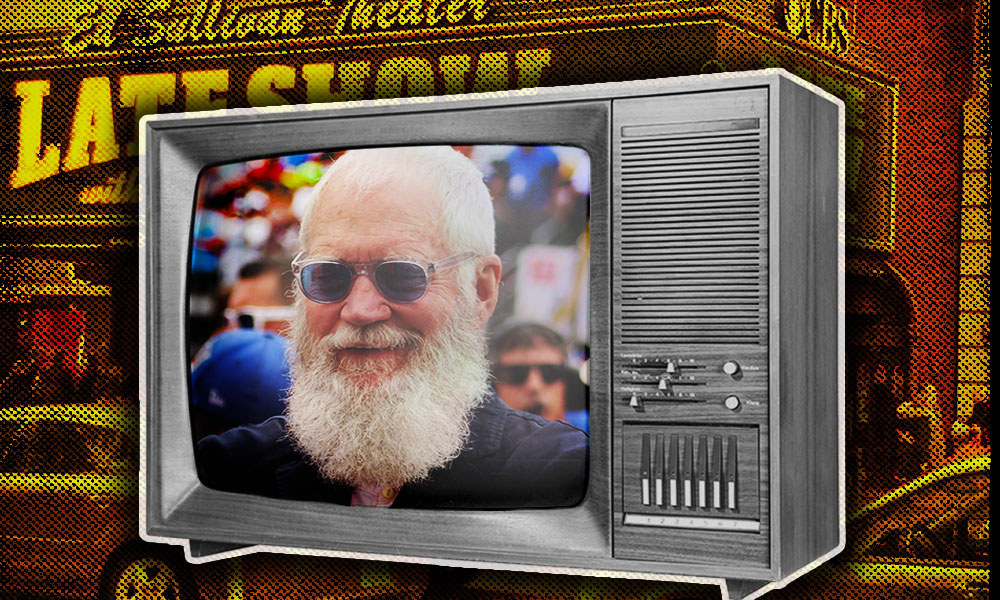 Contact
About Us
Articles
Home
Contact
About Us
Articles
Home

The traditional concept of retirement – a complete withdrawal from the workforce to pursue leisure activities – is being challenged by a growing movement of active seniors and influential figures who advocate for staying engaged well into one's golden years. Serving as an example of this paradigm shift is legendary late-night TV host David Letterman, alongside other prominent celebrities and thought leaders who view retirement not as an ending, but as a dynamic transition into new pursuits and purposes. With increasing life expectancies and changing workplace dynamics, many older Americans are discovering that maintaining purposeful engagement through work, volunteering or creative endeavors can enhance their mental health, financial security and overall quality of life during their retirement years.
In a candid 2024 interview with GQ Magazine, Letterman, 77, the longest-serving late-night talk show host in American television history, shared his thoughts on retirement, stating, "Retirement is a myth. Retirement is nonsense. You won't retire. The human mechanism will not allow you to retire." Letterman, who started as host of “Late Night with David Letterman” on NBC in 1982 before moving on to CBS and "The Late Show," which he left in 2015, emphasized the importance of finding new rhythms and purposes after stepping away from a long-standing career.
Letterman's perspective challenges the traditional view of retirement as a time of complete leisure. Instead, he advocates for a more dynamic approach to later life, suggesting that the desire to produce and contribute doesn't simply vanish with age. "As long as you are healthy, you still want to produce. And you will find ways to," Letterman explained, highlighting the human need for purpose and productivity. “Once I stopped doing the show, it took me a couple of years to figure out that, oh, this is a completely different rhythm. And without the rhythm that you’re accustomed to, largely unsatisfying. So, you got to find something that’s important to you.” In 2018, he resumed his role as a talk show host with his Netflix program “My Next Guest Needs No Introduction.”

Letterman is not alone in his stance on retirement. Many other famous figures have expressed similar sentiments about the importance of staying active and engaged in later years.
Frank Sinatra, the legendary singer and entertainer, famously declared, "Retirement is not in my vocabulary. They aren't going to get rid of me that way". Sinatra's career spanned from the 1940s to the 1990s, demonstrating the power of passion and purpose in one's work well into later life and as long as your health allows it.
Similarly, jazz icon Louis Armstrong shared the philosophy that true passion for one's craft doesn't simply fade with age. He stated, "Musicians don't retire; they stop when there's no more music in them." This sentiment echoes the idea that retirement should be a transition rather than a complete cessation of meaningful activity. Armstrong played a two-week engagement in New York in 1972, just months before a heart attack claimed his life at age 69.
The beloved comedian and actor George Burns worked nearly up to his death at the age of 100. After undergoing major heart surgery at 79, Burns quipped, "The happiest people I know are the ones that are still working. The saddest are the ones who are retired. Very few performers retire on their own. It's usually because no one wants them." His longevity and continued success well past traditional retirement age serve as a testament to the benefits of staying active.
Clint Eastwood, the renowned actor and director, has exemplified the concept of "refiring" oneself multiple times throughout his career. After first “retiring” from acting in the 1990s, he became the mayor of Carmel, California, then returned to filmmaking as a director, and eventually came back to acting. Eastwood's career trajectory illustrates that retirement can be a fluid concept, allowing for new challenges and opportunities. In 2024 at age 94, he remained active, directing the movie, “Juror #2.”
Staying engaged in work or meaningful activities during retirement years can provide significant cognitive benefits. Research suggests that maintaining mental activity can help slow cognitive decline and potentially reduce the risk of dementia. Engaging in problem-solving, learning new skills and maintaining analytical thinking through work or hobbies can keep the mind sharp and agile.
Moreover, working after retirement can provide a sense of purpose and fulfillment that may have previously been tied to one's career. Whether it's through part-time work, volunteering or pursuing passion projects, staying engaged can provide a sense of identity and self-worth that contributes to overall mental well-being.

Continuing to work in retirement can offer several financial benefits. Even part-time work can help supplement retirement income and savings, allowing for a more comfortable lifestyle and potentially reducing financial stress. Additionally, working longer provides more time to contribute to retirement plans, and investments have more time to grow. This can be particularly beneficial given increasing life expectancies and the risk of outliving one's savings.
Furthermore, continued employment may provide access to workplace benefits such as health insurance, dental and vision coverage and other perks that would otherwise need to be paid for out-of-pocket during retirement. This can significantly reduce expenses and stretch retirement savings further.
Staying active in retirement, whether through work or other pursuits, can have positive effects on physical health. Studies have shown that retirees who remain engaged in meaningful activities tend to have better overall health outcomes, including lower rates of cardiovascular disease and other age-related health issues.
Regular physical activity, which can be incorporated into a work routine or pursued separately, helps manage weight, reduce blood pressure, enhance cardiovascular health and improve overall body strength and flexibility. This increased physical activity can lead to greater independence and confidence in daily life.
The modern workplace offers various flexible options for retirees who wish to continue working. These include:
Many companies are recognizing the value of experienced workers and are offering new workplace benefits to retain older employees or entice them back. These may include long-term care insurance that can be kept after retiring or caregiving leave to take care of loved ones without using vacation days.
Volunteering and mentoring are excellent ways for retirees to stay engaged and contribute their expertise to younger generations. These activities provide a sense of purpose and the opportunity to make a meaningful impact on others' lives. Many retirees find joy in sharing their knowledge and experience, whether through formal mentoring programs or informal community involvement.
Universities and colleges often welcome retired faculty and staff to participate in various capacities, such as guest lecturing, serving on committees or helping with special events. These opportunities allow retirees to maintain connections with their former workplace while contributing valuable insights.

Retirement can be an excellent opportunity for continued learning and personal development. Many retirees find satisfaction in acquiring new skills, exploring different fields or even starting new careers. This ongoing growth can lead to increased life satisfaction and a sense of accomplishment.
Educational institutions often offer programs specifically designed for older adults, such as auditing classes or participating in lecture series. These opportunities provide mental stimulation and the chance to engage with diverse topics and ideas.
Recognizing the value of experienced employees, many companies are adapting their policies and practices to support older workers. This includes offering more flexible work arrangements, such as phased retirement programs that allow employees to gradually reduce their hours over time.
Some companies are also providing specialized training programs to help older workers update their skills, particularly in technology. Additionally, there's a growing trend of creating age-diverse teams to foster knowledge sharing and mentorship opportunities between generations.
While working in retirement offers many benefits, it's important to consider potential challenges. These may include:
It's crucial for retirees to carefully consider their options and consult with financial professionals to ensure that working in retirement aligns with their overall financial and lifestyle goals.
The perspectives shared by David Letterman and other famous figures highlight a growing trend in redefining retirement. Rather than viewing it as a time of complete leisure, many are embracing the opportunity to remain productive, engaged and purposeful. The benefits of staying active in retirement are numerous, ranging from improved cognitive and physical health to enhanced emotional well-being and financial stability.
As we continue to live longer, healthier lives, the concept of retirement is likely to evolve further. Embracing opportunities for continued growth, contribution and engagement can lead to a more fulfilling and vibrant retirement experience. Ultimately, the key is to find a balance that allows for both relaxation and purposeful activity, tailored to individual preferences and circumstances.
Alliance America is an insurance and financial services company dedicated to the art of personal financial planning. Our financial professionals can assist you in maximizing your retirement resources and achieving your future goals. We have access to an array of products and services, all focused on helping you enjoy the retirement lifestyle you want and deserve. You can request a no-cost, no-obligation consultation by calling (833) 219-6884 today.


